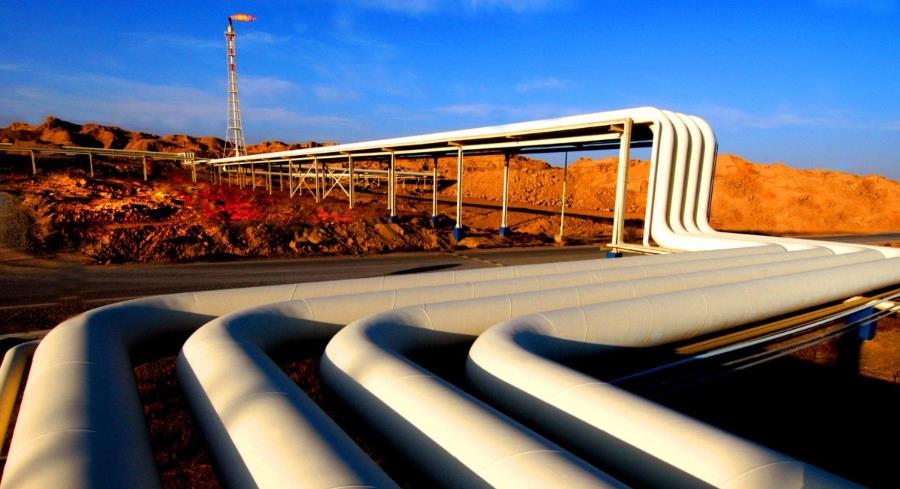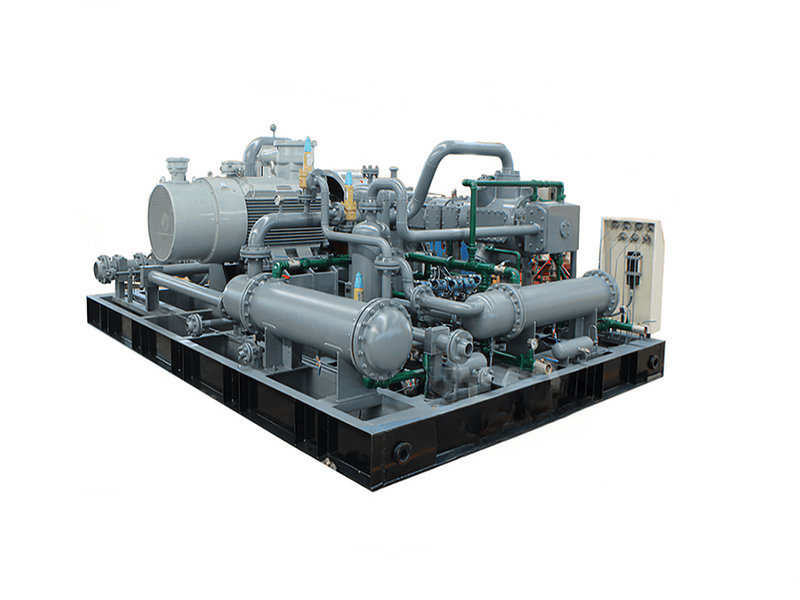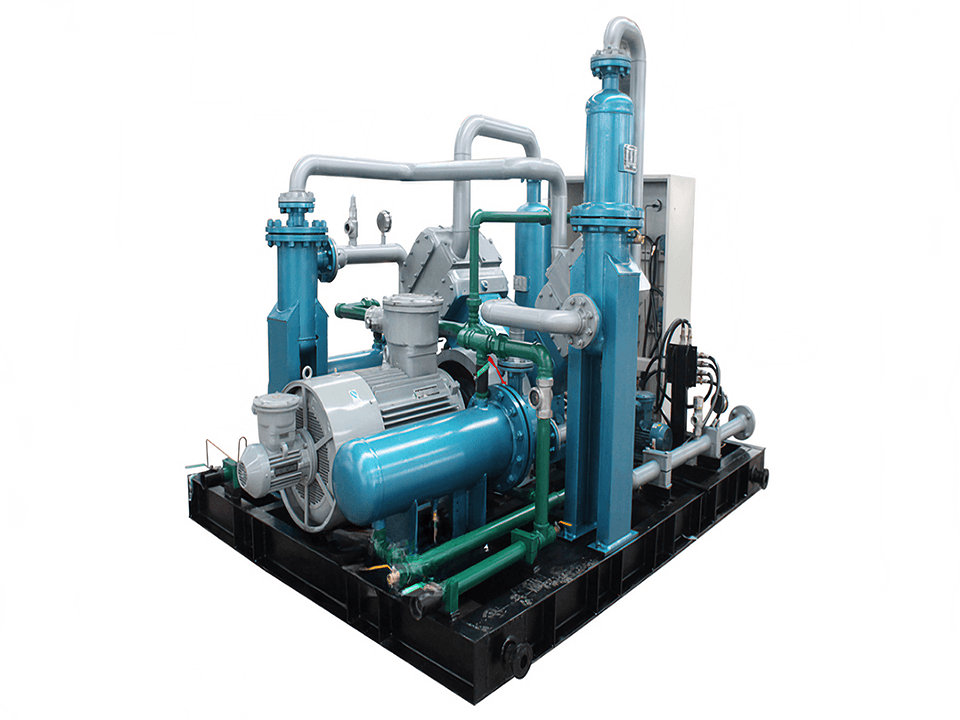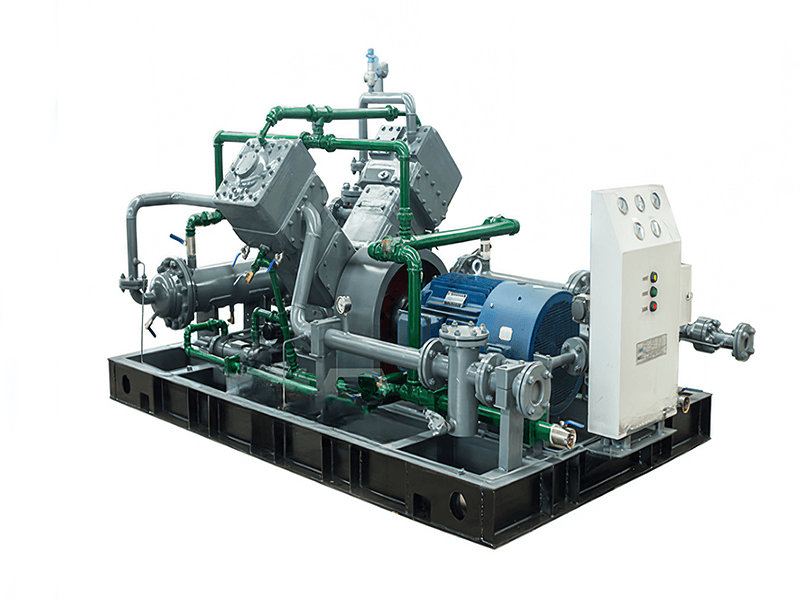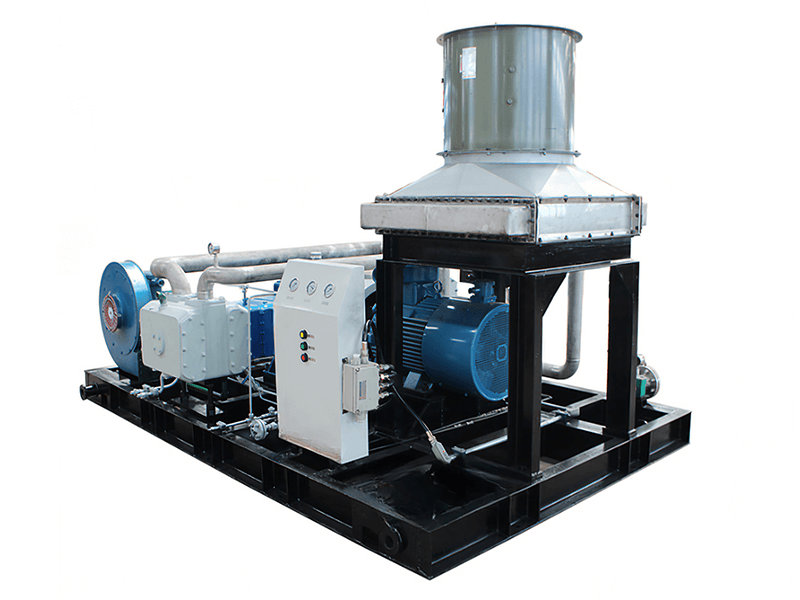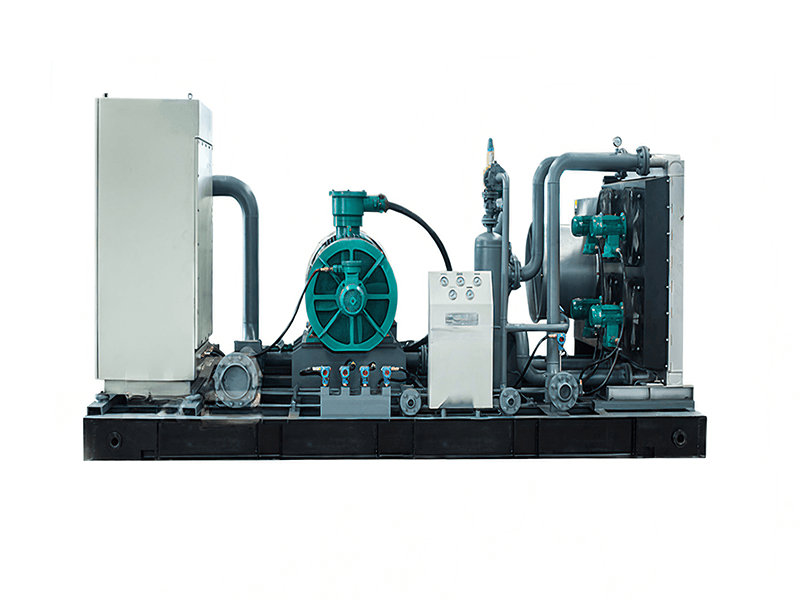Rich gas refers to a natural gas composition that has a higher concentration of hydrocarbon compounds, particularly heavier hydrocarbons such as ethane, propane, butane, and pentane, compared to lean gas. The term "rich" in this context indicates a higher energy content and a greater number of heavier hydrocarbons present in the gas mixture.
Natural gas is primarily composed of methane (CH4), which is the lightest hydrocarbon. However, natural gas reserves can also contain varying amounts of other hydrocarbons. When the concentration of these heavier hydrocarbons increases, the gas is referred to as rich gas.
Rich gas is often found in association with crude oil deposits or in gas fields where the hydrocarbon reservoir contains a significant proportion of heavier hydrocarbons. It is commonly extracted alongside crude oil during oil production or processed separately in natural gas processing facilities.
Rich gas has higher calorific value or energy content compared to lean gas, which is primarily composed of methane. This makes rich gas suitable for various applications that require higher energy, such as industrial processes, power generation, and heating systems.
However, the presence of heavier hydrocarbons in rich gas can pose challenges during transportation, storage, and utilization. These hydrocarbons may require additional processing steps, such as separation, fractionation, or treatment, to remove impurities and ensure the gas meets specific quality standards and safety requirements.

About rich gas recovery
Rich gas recovery refers to the process of extracting or recovering valuable hydrocarbon compounds, particularly heavier hydrocarbons, from natural gas streams that have a higher concentration of these compounds. The goal is to separate and capture the valuable components, such as ethane, propane, butane, and pentane, from the natural gas mixture.
Rich gas recovery is typically employed in gas processing facilities or plants where natural gas is treated to remove impurities and separate valuable components for further processing or utilization. The process involves several steps, including:
1. Separation: The natural gas stream is subjected to separation techniques to remove impurities and separate the rich gas components. Various separation methods may be used, such as absorption, adsorption, distillation, or cryogenic processes, depending on the specific composition and characteristics of the gas stream.
2. Fractionation: Once the rich gas components are separated, they may undergo fractionation, which involves further separation based on their boiling points or vapor pressures. This process allows for the isolation of individual hydrocarbons, such as propane, butane, or pentane, which can be used for various purposes like fuel, feedstock for petrochemical industries, or as liquefied petroleum gas (LPG).
3. Treatment and Processing: The separated rich gas components may undergo additional treatment and processing steps to meet specific quality requirements or to remove impurities. This can include processes like dehydration, sweetening (removal of hydrogen sulfide), or other purification techniques.
4. Storage and Transportation: Once the rich gas components are recovered and processed, they may be stored in appropriate containers or tanks for temporary storage or transported via pipelines, trucks, or ships to end-users or further processing facilities.
Rich gas recovery allows for the efficient utilization of natural gas resources by extracting valuable hydrocarbons that have commercial value or can be used as feedstock for other industries. It helps maximize the economic value of the gas and reduces waste by capturing and utilizing the heavier hydrocarbon components present in the natural gas stream.
The specific techniques and processes used for rich gas recovery can vary depending on the composition, volume, and quality requirements of the natural gas stream, as well as the desired end-use applications.
The significance of rich gas recovery
Rich gas recovery holds several significant advantages and benefits, both from an economic and environmental standpoint. Here are some key aspects highlighting the significance of rich gas recovery:
1. Economic Value: Rich gas recovery allows for the extraction of valuable hydrocarbon components, such as ethane, propane, butane, and pentane, from natural gas streams. These components have commercial value and can be used as feedstock for various industries, including petrochemicals, plastics, heating fuels, and liquefied petroleum gas (LPG). Recovering and utilizing these components increases the economic value of natural gas resources and provides additional revenue streams for gas producers.
2. Resource Optimization: Rich gas recovery maximizes the utilization of natural gas resources. By extracting and recovering the heavier hydrocarbons present in the gas stream, it ensures that a broader range of hydrocarbon components is utilized rather than being left unused or flared. This enhances energy efficiency and reduces waste, making better use of the available resource.
3. Environmental Benefits: Rich gas recovery has environmental advantages by reducing greenhouse gas emissions and minimizing waste. When the heavier hydrocarbon components in the gas stream are recovered and utilized, it reduces the need for their production from other sources, such as crude oil or separate natural gas liquids (NGL) extraction processes. This reduces overall carbon footprint and environmental impact associated with extracting and refining additional hydrocarbon sources.
4. Enhanced Energy Security: Recovering and utilizing the heavier hydrocarbon components from natural gas contributes to energy security. It diversifies the energy mix by providing alternative fuel sources and reduces reliance on traditional fossil fuels. Rich gas recovery helps ensure a more stable and sustainable energy supply, particularly for applications where higher energy content or specific hydrocarbon components are required.
5. Technological Advancements and Innovation: The development of advanced separation and processing technologies has significantly improved the efficiency and effectiveness of rich gas recovery. Ongoing advancements in techniques such as cryogenic processes, membrane separation, and adsorption systems continue to enhance recovery rates, product yields, and overall process efficiency. These innovations drive the growth and optimization of rich gas recovery operations.
6. Regulatory Compliance: In many regions, regulations and emissions standards are becoming more stringent, requiring the reduction of flaring or venting of hydrocarbons. Rich gas recovery helps meet these regulatory requirements by capturing and utilizing the valuable hydrocarbon components that would otherwise be wasted or released into the atmosphere. It supports compliance with environmental regulations and promotes sustainable practices in the oil and gas industry.
Overall, rich gas recovery plays a crucial role in maximizing the value of natural gas resources, reducing waste, minimizing environmental impact, and contributing to a more secure and sustainable energy future. It combines economic benefits with environmental stewardship, making it a significant aspect of gas processing and utilization.

